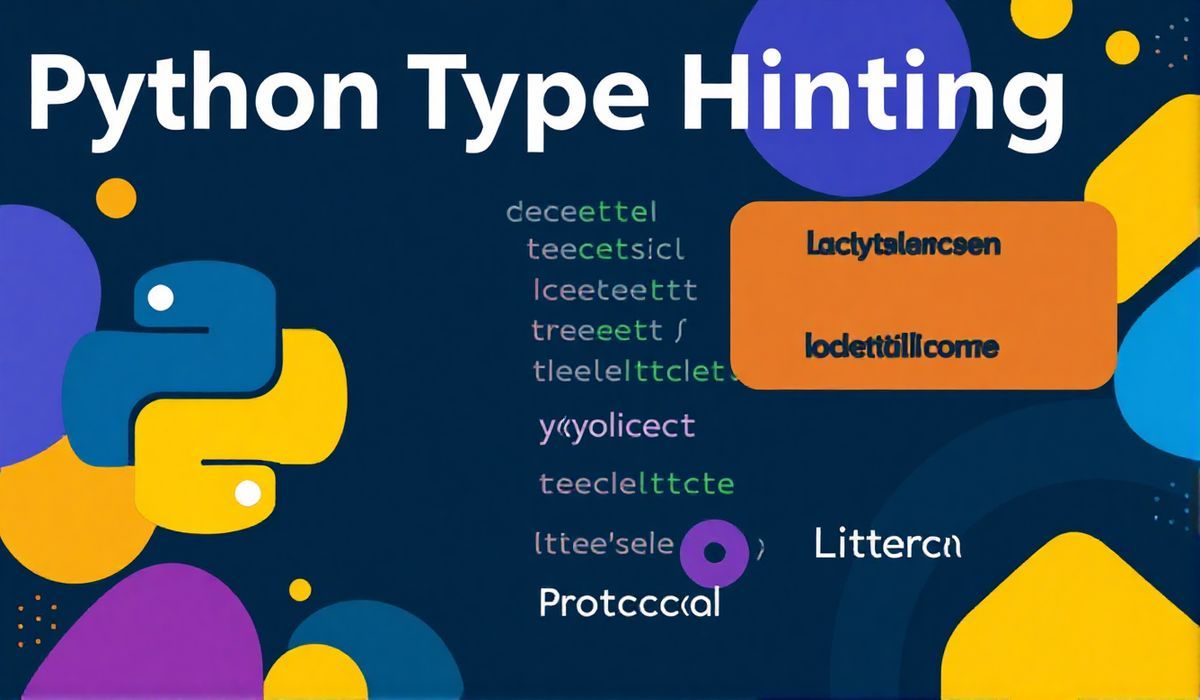Introduction to Typing-Extensions
Modern Python comes with robust type hinting capabilities, making your code more readable and easier to maintain. The typing-extensions module extends Python’s built-in typing module by providing additional features and backports for older Python versions. It ensures that your type-hinting arsenal is up-to-date, even if you’re not using the latest Python release.
Why Use Typing-Extensions?
The typing-extensions module is indispensable for developers who want to use cutting-edge type-checking features without waiting for them to be officially added to the Python standard library. It also makes it possible to write uniform type-safe code across a range of Python versions.
Useful APIs in Typing-Extensions
Below is a detailed introduction to the most frequently used APIs from typing-extensions, followed by code examples for clarity.
1. TypedDict
Helps to define a dictionary with specific key-value types.
from typing_extensions import TypedDict
class User(TypedDict):
username: str
age: int
user: User = {"username": "john_doe", "age": 30}
print(user) # Output: {'username': 'john_doe', 'age': 30}
2. Literal
Allows you to define specific literal values that a variable can take.
from typing_extensions import Literal
def get_user_role(role: Literal["admin", "user", "guest"]) -> str:
return f"The role is {role}"
print(get_user_role("admin")) # Output: The role is admin
3. Final
Prevents a class or variable from being overridden.
from typing_extensions import Final PI: Final = 3.14159 # Can't be reassigned print(PI) # Output: 3.14159
4. Protocol
Defines structural subtyping by enforcing methods/property signatures.
from typing_extensions import Protocol
class Greeter(Protocol):
def greet(self, name: str) -> str:
...
class FriendlyGreeter:
def greet(self, name: str) -> str:
return f"Hello, {name}!"
def use_greeter(greeter: Greeter):
print(greeter.greet("Alice"))
greeter = FriendlyGreeter()
use_greeter(greeter) # Output: Hello, Alice!
5. Annotated
Adds metadata to types for more context.
from typing_extensions import Annotated
def greet_user(name: Annotated[str, "The user's full name"]):
print(f"Hello, {name}!")
greet_user("Bob Smith")
6. Self
Helps with type hinting in method chains or fluent interfaces.
from typing_extensions import Self
class Fluent:
def set_value(self, value: int) -> Self:
self.value = value
return self
def display(self) -> None:
print(self.value)
obj = Fluent()
obj.set_value(42).display() # Output: 42
7. NotRequired (for TypedDict)
Allows optional keys in TypedDict.
from typing_extensions import TypedDict, NotRequired
class Config(TypedDict):
host: str
port: int
environment: NotRequired[str]
config: Config = {"host": "localhost", "port": 8000}
print(config) # Output: {'host': 'localhost', 'port': 8000}
Building a Simple App Using Typing-Extensions
Let’s create a simple user management system that leverages TypedDict, Literal, and Protocol from typing-extensions.
from typing_extensions import TypedDict, Literal, Protocol
from typing import List
class User(TypedDict):
username: str
age: int
role: Literal["admin", "user", "guest"]
class Repository(Protocol):
def add_user(self, user: User) -> None:
...
def get_users(self) -> List[User]:
...
class InMemoryRepository:
def __init__(self):
self._users: List[User] = []
def add_user(self, user: User) -> None:
self._users.append(user)
def get_users(self) -> List[User]:
return self._users
repo: Repository = InMemoryRepository()
repo.add_user({"username": "alice", "age": 25, "role": "user"})
repo.add_user({"username": "bob", "age": 30, "role": "admin"})
users = repo.get_users()
for user in users:
print(user)
# Output:
# {'username': 'alice', 'age': 25, 'role': 'user'}
# {'username': 'bob', 'age': 30, 'role': 'admin'}
The app demonstrates how the Protocol enforces a contract, Literal ensures valid role types, and TypedDict ensures strict dictionary typing.
Conclusion
By incorporating typing-extensions into your projects, you can unlock advanced type hinting capabilities even on older Python versions. Its rich API simplifies development with better type safety, helping streamline the coding process.




